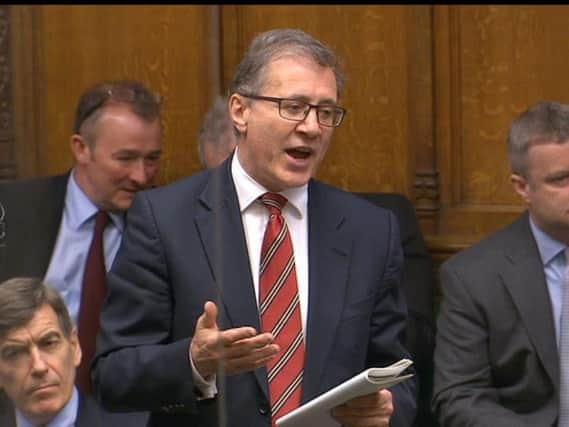Rugby's MP votes against government in key EU bill


Mr Pawsey voted against the amendment, which had been added to the bill as a concession to a Eurosceptic group of MPs (the ERG) chaired by Jacob Rees-Mogg.
The amendment was one of four which had been proposed, two of which were passed without a vote, with the other two narrowly passing Commons votes.
Advertisement
Hide AdAdvertisement
Hide AdThe amendment Mr Pawsey voted against, clause 36, aims to make it illegal for the UK to collect tariffs for the EU if the EU does not collect tariffs for the UK.
The Customs Bill eventually passed with a majority of 33 – but clause 36 was added to the bill with a majority of only three.
The amendments came after criticism from the ERG and the resignations of several leading Brexiteers over Theresa May’s Brexit strategy – which was outlined after the Chequers summit last week and viewed by some as constituting a ‘soft Brexit’.
The new clause 36 is seen by some as an attempt to force the Government into a hard Brexit.
Advertisement
Hide AdAdvertisement
Hide AdMr Pawsey told the Advertiser: “I voted against the amendment that was brought forward as I did not believe that it was consistent with the Chequers agreement which I support as I want to see a business-friendly Brexit.
“We are leaving the EU and I have always been consistent since the referendum result that the decision made by the British people must be respected and implemented.
“We also, however, need to ensure that after we leave we enable local manufacturing businesses to continue to move goods freely which will protect jobs and livelihoods here in Rugby and across the West Midlands.”
In March this year Mr Pawsey backed a Business, Energy and Industrial Strategy Select Committee report which expressed concern over the impact of a hard Brexit on Britain’s car industry.
Mr Pawsey, a member of that select committee, said: “[It is] unrealistic to expect an expansion of trade overseas to outweigh the loss of trade to Europe arising from a hard Brexit.”